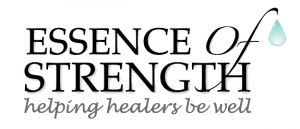My Facebook bio describes me as a “recovering altruistic overachiever.” In the years since I wrote it, I’ve realized that isn’t an accurate depiction of me. Being a high achieving do-gooder was not my issue. Rather, it was pathological altruism.
I love helping people. I always want to do my best. Neither of these traits is bad or in need of changing. The problem arises when helping others always supersedes paying attention to my own well-being. That is when altruism has become excessive.
When I left clinical medicine, I thought a big contributor to my burnout was the pressure of having other people’s health and lives as my responsibility. Managing to get burnt out as a personal trainer made me admit the life and death element probably wasn’t as integral as I’d previously believed. Sustained satisfaction in my life required a mindset shift and not simply an environment change.
In the years since I transitioned away from the bedside, I’ve realized there are some general principles that help me curb my pathologically altruistic tendencies regardless of the setting.
Respect my own boundaries.
It is easy to blame other people for infringing upon my boundaries. However, I can’t expect everyone to hold off asking when they know their requests are excessive. Some folks are wired to try almost anything if they think there is a chance it will work. That’s what makes it imperative for me to establish and maintain the boundaries that best serve me.
The most important thing for me is knowing when it’s always no. There are some requests that require me to consider whether yes or no is the proper response. There are also a whole bunch of things that are always no.
For example, I’m not a morning person. It took me the better part of forty years to design a life that doesn’t require me to be anywhere before dawn. Now, the only reason I agree to be somewhere early is for a paid engagement.
That’s why when friends invite me to exercise classes that start at 6 am, my response is usually some version of “Thanks. Nah.” The request isn’t unreasonable. It simply doesn’t fit within my personal boundaries for time management, and I design my life with my priorities in mind.
Listen to my body.
My body gives me messages that serve my well-being. In fact, listening to my body yields much greater kindness to myself than listening to my brain does. My brain has been trained to be helpful to others and keep going at all costs. Regardless of my sleep or food deprivation, it agrees to do the extra thing.
On the other hand, my body tells me to nap or eat before I do another thing or it will stop functioning. After having a few instances where my body made good on that stop functioning threat, I learned to listen to it for my own well-being.
Get Over Myself.
When my confidence overflows into hubris, I can be fooled into thinking I am the only one who can attend to a task. That is pretty much never true. I have many skills that allow me to be more than proficient at numerous duties. There are still a whole bunch of other people who can do the same stuff I do if I am not available.
My pride hurts everyone when I decide to do something based on comparing the best version of my efforts to that of others, then I show up as much less than my best. How is showing up late, tired and irritable better than simply saying no? Now, I know how to get over myself to allow the people in my world to step into their ability.
As with any person who has been a certain way for a long time, I backslide into old pathologically altruistic habits occasionally. My brain still defaults into thinking how I can respond in the affirmative to any request. Now I consider how my boundaries, body and big ego play into my response before I let it out of my head.
It’s admirable to be concerned about helping others. It’s only sustainable when I’m also concerned about myself.
Did you enjoy this article? Sign up here to have blog updates and regular self care reflections and exercises delivered directly to your inbox.
If you would like help establishing the habits that promote appropriate altruism please click here to request an Essence of Strength complimentary clarity conversation.




